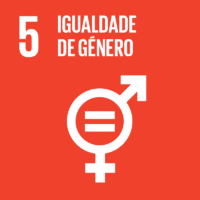Ciência-IUL
Comunicações
Descrição Detalhada da Comunicação
Innovation frameworks in the Portuguese media ecosystem
Título Evento
European Media Management Association anual conference
Ano (publicação definitiva)
2023
Língua
Inglês
País
Espanha
Mais Informação
Web of Science®
Esta publicação não está indexada na Web of Science®
Scopus
Esta publicação não está indexada na Scopus
Google Scholar
Abstract/Resumo
Innovation plays a significant role in the mindset of media managers and the media management sphere. The conceptualization of innovation could arguably constitute an academic field of research on its own, market consultant and research firms publish yearly reports and managers are often called to voice their own opinion of what lies ahead. In an isolated manner, all these three spheres contribute to a conceptual map of what innovation means but usually remain as isolated, non-communicative spheres.
In the aftermath of the pandemic, the challenges faced by media stakeholders are multidimensional in their complexity. While organizations are still coming to term with the changes caused by the pandemic, namely in the way work should be organized (Cherubini, 2022), there are significant challenges ahead, mostly related to the rise of artificial intelligence (Newman, 2023; Cardoso et al., 2022). As both brands and professionals embrace for the impact of new AI tools and their potential for both enablement and disruption, in the sector, old challenges remain in place when it comes to the redefinition of business models and practices in the digital age. With traditional revenue streams drying up, the adaptation to digital business models and distribution frameworks still faces significant attrition in a heavily platformed digital environment.
In a small market such as Portugal and even though brands benefit from a rather positive relationship with audiences, characterized by overwhelmingly high trust in media and concern regarding disinformation from consumers (Cardoso, Paisana and Pinto-Martinho, 2022), media brands reflect on how to innovate and adapt while maintaining some of the traits that generated such a positive public response to the role of journalism and society (Mont'Alverne et al., 2022).
As in several countries around the world, interest in news fell significantly in Portugal in 2022 (Newman et al., 2022; Cardoso, Paisana, Pinto-Martinho, 2022), in parallel with rising news avoidance caused by pandemic, politics and war related coverage (Toff and Nielsen, 2022) and while some organizations and brands have turned to revamped coverage to mitigate these phenomenon, others have understood that the changes ahead must be tackled by structural changes to the way news and content are produced and distributed, and to the internal management of media structures.
With this contribution, we aim to accomplish two main objectives: a) as in traditional prospective / outcome reports, to identify major areas of convergence in media innovation for the next 12 months, based on the input of strategy managers and market experts and b) undertake a meta-analysis of the conceptual value of these trends, by their classification and consideration under a three-dimensional grid where we identify production, distribution, and management related frameworks. In order to solidify an holistic approach to the subject of innovation, in this research we approach all analytic dimensions related with journalistic processes and products, including not only external areas of influence but also internal aspects such as management, human resources, internal organization elements, revenue sources and streams, marketing, advertising and labour and power distribution.
To approach these different elements we identified a group of 20+ managers and specialists in media and conducted interviews to confront them with the grid of international trends, so we can try to evaluate how international innovation trends affect the Portuguese media landscape, and how the national challenges affect or alter these innovation needs and desires. The interviews were codified using thematic analysis, to allow a categorization and, in some cases, quantification of the innovation strategies and actions of the Portuguese Media.
We concluded that the international trends are considered when the Portuguese media define their strategies in short/medium term, but that the economic debility/ lack of financial and human resources, and the small dimension of the market is a big constraint to the Portuguese media companies. So, even if there is a desire to innovate and be on track with the international trends, the internal context is a constrain to change. While the specific case of Portugal differs from larger European markets, we aim to provide evidence and data that may be of use to the understanding of media dynamics in smaller peripheral countries, facing the need for innovation in media while handling internal factors that severely constrain changes in the industry.
Agradecimentos/Acknowledgements
--
Palavras-chave
Management,technology,digitalization,News media,media management
Classificação Fields of Science and Technology
- Economia e Gestão - Ciências Sociais
- Ciências da Comunicação - Ciências Sociais
Contribuições para os Objetivos do Desenvolvimento Sustentável das Nações Unidas
Com o objetivo de aumentar a investigação direcionada para o cumprimento dos Objetivos do Desenvolvimento Sustentável para 2030 das Nações Unidas, é disponibilizada no Ciência-IUL a possibilidade de associação, quando aplicável, dos artigos científicos aos Objetivos do Desenvolvimento Sustentável. Estes são os Objetivos do Desenvolvimento Sustentável identificados pelo(s) autor(es) para esta publicação. Para uma informação detalhada dos Objetivos do Desenvolvimento Sustentável, clique aqui.

 English
English



